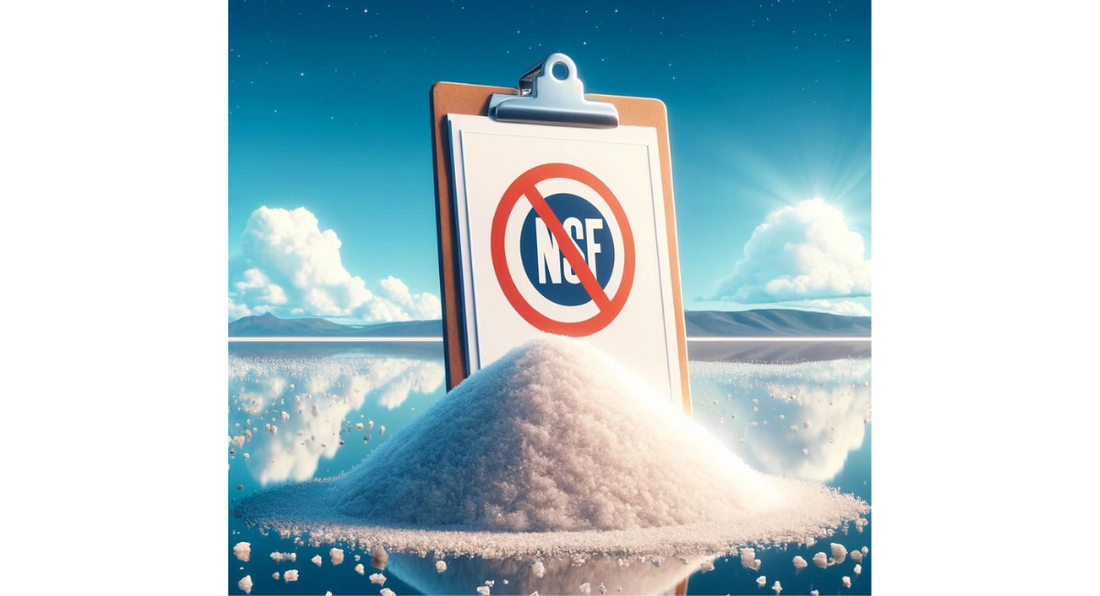
Understanding NSF Certification: Why Salt of the Earth Doesn't Need It
Share
What is NSF Certification? NSF certification is a seal of approval from NSF International, a third-party organization that independently tests products to ensure they meet strict standards of safety, quality, and sanitation. NSF, which stands for the National Sanitation Foundation, was founded in 1944 at the University of Michigan’s School of Public Health. Over the years, it has expanded globally, setting and maintaining standards for various industries.
Why is NSF Certification Important? NSF certification is crucial in industries like supplements, food service, water quality, and more. For supplements, it guarantees that products are free from banned substances, contaminants, and that what’s on the label is in the product. This certification is recognized by major sports organizations, including MLB, NHL, and the United States Anti-Doping Agency (USADA). It reassures consumers and athletes that the products they use are safe and compliant with high standards.
The Scope of NSF Certification NSF International certifies a wide range of products, including:
- Commercial Foodservice Products: Ensures kitchen equipment meets sanitation standards, preventing contamination from harmful pathogens and chemicals.
- Water Products: Certifies bottled water, municipal water systems, pools, spas, plumbing products, and water treatment systems to ensure safety and quality.
- Supplements: Verifies the composition of vitamins, minerals, herbs, sports supplements, and more, ensuring they are free from banned substances and contaminants.
- Foods and Beverages: While NSF doesn't certify foods and beverages per se, it provides verification for organic, non-GMO, gluten-free, kosher, and other claims.
Salt of the Earth and NSF Certification Salt of the Earth is classified as a beverage, not a supplement, which means it isn't eligible for NSF certification. However, this doesn't compromise its safety and quality. Here's why:
- Manufacturing Facility Certification: Salt of the Earth's manufacturing facility is NSF-certified and operates under cGMP (current Good Manufacturing Practice) standards. This ensures that the facility meets rigorous safety, quality, and sanitation requirements.
- High-Quality Standards: The cGMP certification means that Salt of the Earth adheres to strict guidelines that prevent contamination and ensure the product's consistency and reliability. Regular audits are conducted to maintain these high standards.
- Transparency and Safety: Even without the NSF badge, Salt of the Earth provides transparency about its ingredients and manufacturing processes. This ensures that what’s on the label is what’s in the product, giving athletes confidence in its safety and efficacy.
Why Companies Seek NSF Certification Many companies pursue NSF certification to enhance credibility, ensure compliance with national and international standards, and provide an added layer of trust for consumers. The certification process involves a comprehensive review, laboratory testing, and regular audits, which help catch potential safety or sanitation concerns early.
Conclusion While Salt of the Earth isn't NSF-certified due to its classification as a beverage, it is produced in an NSF-certified facility that follows cGMP standards. This guarantees a high level of safety, quality, and transparency, making it a reliable choice for athletes and health-conscious consumers.

